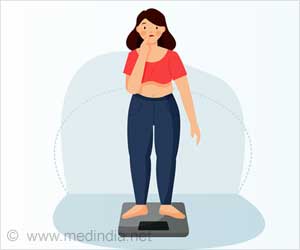
But with being thin or being size zero is the new fad especially among the young women and the fashion industry has perpetuated this over the last couple of decades. So being fat or obese is equated to being ugly and has created prejudices and aversion in our mind(). Moreover, the word fat itself is portrayed as highly inflammatory and depicts not being healthy in the health care settings ().
Transition of Fat
The pervasively depicted creed of social discrimination for fat/obesity in today’s century () had almost a diverse fragment in the early times — 23,000 to 25,000 years ago in Europe where “Venus of Willendorf,” “Venus figurines” — round, pear-shaped portrayal of woman’s body with large breasts were symbolized for fertility and attractiveness ().
A similar depiction of beauty with curves was very much evident in ancient times (), and excess body weight (voluptuous and round) was measured as a sign of affluence ().
Although the exact lineage of interpretation of such figures was limited, the cultural paradigm of the “ideal” body representation has taken a huge turnover, (like thin, waif-like models — “Gibson Girl”) from pre-historic times (, ).
“We really saw models like Twiggy lauded for how small and lean they were, and it became a sign of beauty. Today, we see more weight bias in high-income countries like the U.S., as opposed to low-income countries where a high weight is seen as a sign of wealth,” says Dr. Fatima Cody Stanford, Massachusetts General Hospital, and Harvard Medical School in Boston ().
This may be attributed partly due to the rise of the slave trade during the 18th century (when Europeans colonized and established racial superiority based on their large size and skin color) and relatively () due to societal pressures to meet the context of the ideal body, especially among women and young ones ().
Biases Underlying Fatphobia
Societal Bias
The scientific evidence for obesity as an epidemic disease has led to immense chauvinism and discrimination against obese or overweight individuals ().
Fatphobia is more than merely a term, which often preserves the credence that overweight or obese people are lazy, with lower willpower and poor intelligence. Moreover, the bias is almost engrained and widespread in the societal infrastructure from fashion, clothing, and cinemas to the community level and even the medical field ().
“It’s all so dehumanizing, and it endangers both the physical and mental health of those who [have] overweight and [obesity],” says Dr. Fatima Cody Stanford ().
Fatphobia is prevalent even in the work field where obese people individuals face discrimination in hiring (women — eight times and men three times more) as per the International Labor Organization (ILO) and the Human Rights Defender ().
“Obesity is not always attributable to eating too many calories. People with obesity have impaired metabolic pathways, and their brains send out disordered signaling for hunger and fullness. That’s why it’s not as simple as just telling patients to watch what they eat and exercise,” says Dr. Stanford ()
Pathological Diet Culture
Yet another root source that feeds fatphobia is the diet culture that categorizes specific food and eating habits as beneficial or harmful, oppressed with hate speech shame, and pathological views toward fat/obese people ().
The culture rather allows one to deny their hunger and food desires through obligingly continual attention to their food picks, opting for the formula ():
‘Obesity is equal to Unhappiness and Thinness is equal to Happiness’
The omnipresence of diet culture hence takes the form of a “belief system: promoting thinness and associating it with health, happiness and moral virtue encouraging weight loss, so that we waste time, energy and money trying to lose weight, idealizing an unattainable model of beauty, demonizing and shaming certain ways of eating and certain bodies while advocating others oppressing and discriminating against people who do not fit the standards of thinness and the supposed image of “health.” specifically women, which harms both their mental and physical health,” as defined by Christy Harrison, anti-diet dietitian().
This hinders obese people to eat or move freely of their will in public spaces. Promoting diet culture through different restrictive diets — paleo, ketogenic, intermittent fasting and similar may ultimately lead to dangerous food relationships — the development of eating disorders like binge eating, anorexia nervosa, or other psychiatric illness ().
READ RELATED: NHS dentist tells patient: 'I'll only see you if go private and pay DOUBLE'
Despite the awareness of the long-term failure rate of diets for overweight (failure rate being more than 95% and success rate under 5%), the public continues to follow the designed to fail strategy (diet culture) with growing insecurities of obesity().
Moreover, it is estimated that the “wellness economy” amounts to over 3,700 billion dollars globally with 648 billion contributed to nutrition and weight loss as calculated by the Global Wellness Institute (American non-profit organization) — a trend set to grow beyond ().
High BMI Does Not Mean You Are Unhealthy
Body mass index (BMI) is another stigmatizing overtone toward obesity and overweight.
The measure was created by Adolphe Quetelet, a Belgian mathematician in 1832 to estimate the “perfect weight of the average man” as a depiction of social ideal ().
Over time, this had become a frequently imposed universal medical standard, which racializes obese people. In addition, BMI has also been included in the World Health Organization (WHO) definition of “obesity” since 1985 ().
However, a United States study reveals that only 4% of the 47% of people diagnosed as “obese” were found to be unhealthy (). BMI may overestimate and underestimate for muscular body mass and athletic body, respectively. This shows that health is not merely measured by BMI but rather comprises multiple factors like physical activity, mental health, sleep, stress and social relationships ().
Exaggerated negative gestures by even medical practitioners toward obese people add hesitation among them to further seek medical help, thereby compromising health care access among those with fatphobia ().
“There is a lack of knowledge and understanding of obesity in the medical community, which leads to prejudices and stereotypes according to which an obese person eats too much and/or badly and does not exercise. But obesity is a very complex pathology, which cannot be summed up on a plate,” says Dr. Gauthier, a nutritionist and member of the collège Scientifique de la Fondation Ramsay Générale de Santé ().
Overcome the Fear of Fatness!
Fear of fatness can exaggerate all the said factors and drive people toward even stricter ordangerous diet habits, anxieties concerning body image, or struggle with reduced acceptability of self ().
It is equally important to abolish the fear of fat even if one is not in a larger body to establish proper drives toward obesity and positive health ().
Campaigns by several activists and experts have brought down the threateningly elevated points of fatphobia. For example, a campaign by Dr. Stanford has also led the American Medical Association (AMA) to eliminate all the fat references from its website and literature in 2017 ().
Hence, these deviations require a collective change of mentalities to prevent the ill-perils of fatphobia built on inappropriate standards ().
References
- Fat phobia: measuring, understanding, and changing anti-fat attitudes – (1.https://pubmed.ncbi.nlm.nih.gov/8293029/)
- fatphobia – (https://en.wiktionary.org/wiki/fatphobia)
- What ‘fatphobia’ really means, and why it’s so harmful – (https://www.socsci.uci.edu/newsevents/news/2022/2022-05-01-strings-livestrong.php)
- Fatphobia, a pervasive and socially accepted discrimination – (https://www.growthinktank.org/en/fatphobia-a-pervasive-and-socially-accepted-discrimination/)
- The history of the ‘ideal’ woman and where that has left us – (https://edition.cnn.com/2018/03/07/health/body-image-history-of-beauty-explainer-intl/index.html)
- Weight-based discrimination: social representations of internet users about fatphobia – (Weight-based discrimination: social representations of internet users about fatphobia)
- Health, Weight Stigma & Fatphobia – (https://firststepsed.co.uk/health-weight-stigma-fatphobia/)
Source: Medindia
Source:







